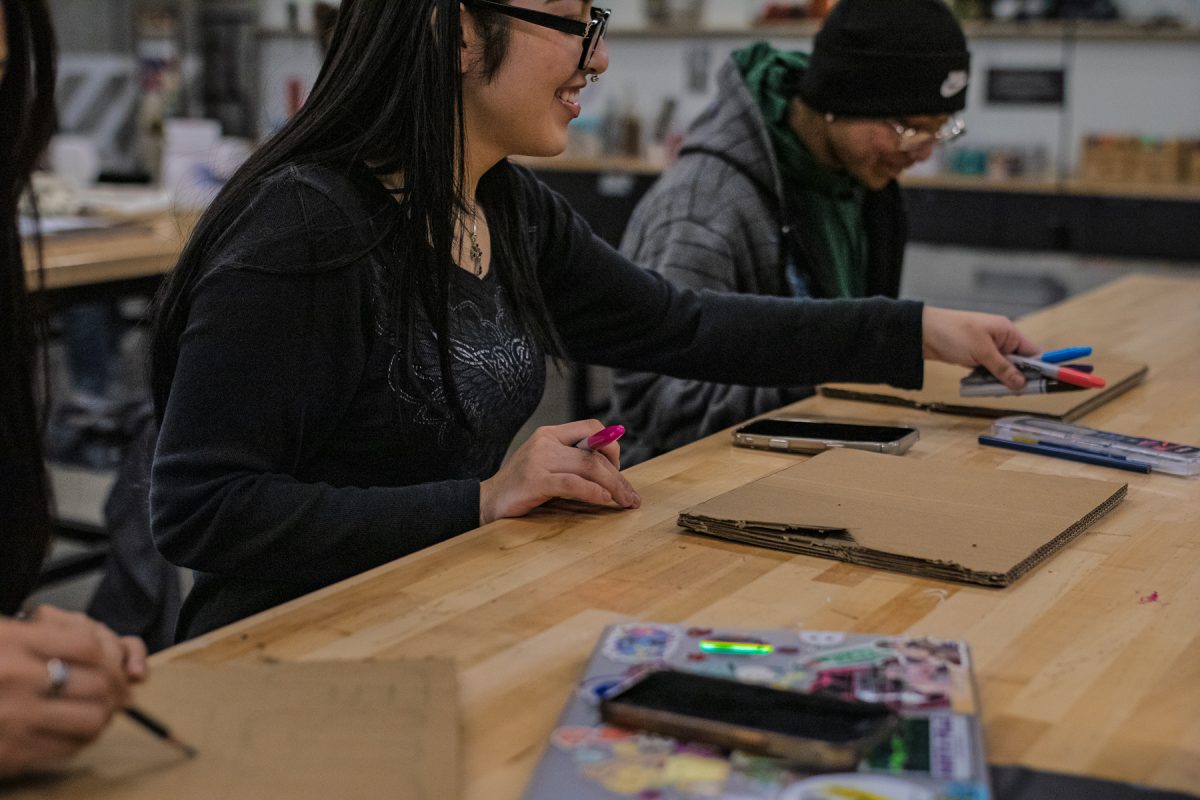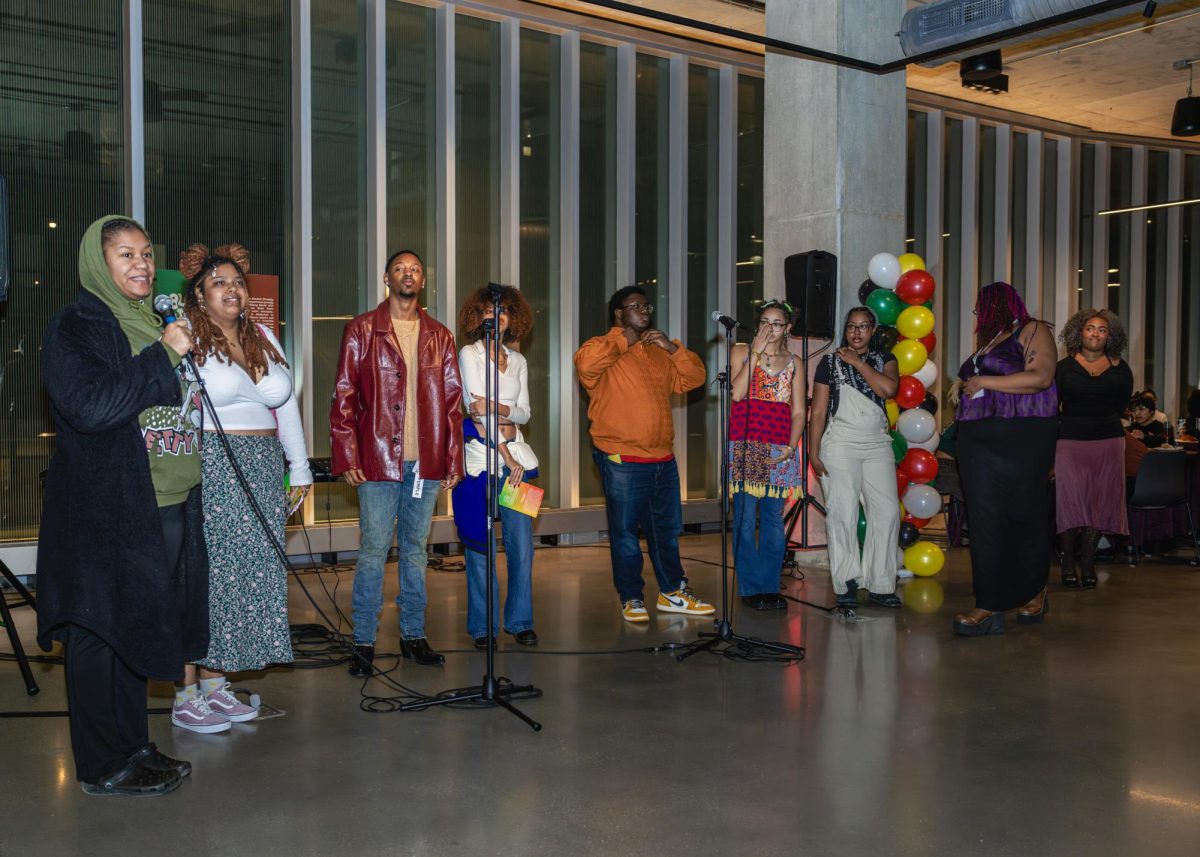Sophomore photography major Samuel Martinez’s family has been on edge under the Trump administration’s recent immigration sweeps, including in sanctuary cities like Chicago, where he and his parents reside. Martinez, whose parents came to the United States from Mexico before he was born, said there is an ongoing fear in his everyday life.
He’s studying at Columbia and getting a degree for his parents, “to make them happy, to make them feel accomplished for what they’ve done,” Martinez told the Chronicle. “For Trump to be here and wanting to hijack all the work that we’ve progressed over the years in this country, it just was very annoying.”
The end of this month will mark Trump’s first 100 days in office, and so far, he has issued more than 100 executive orders and undertaken a massive effort to reshape the federal government, enact tariffs and target migrants, immigrants and, in some cases, legal permanent residents. He also has launched an attack on higher education, cutting research funding and demanding that colleges and universities end diversity, equity and inclusion programs, including support for the LGBTQ+ community.
In interviews with the Chronicle, students described the impact on their mental health, as they navigate all of the changes and disruption.
First-year fashion design major Denise Butler said one way she copes with the worry she feels is speaking with her community.
“I’ve been a little bit more stressed recently with everything going on, especially with financial aid, but I think just talking to my family about it makes me feel better,” Butler said.
College-age students were already worried about the direction of the country, even before Trump took office in January for a second term.
Only 42% of people ages 18 to 34 feel the United States government has their best interest in mind, according to the American Psychological Association Stress in America 2024 Survey.
Celeste Campos-Castillo, an associate professor at Michigan State University’s Department of Media and Information, said that the impact is felt the most by the most vulnerable.
Given what she saw in the first Trump administration, “I expect sexual and gender minorities and racial minorities to experience elevated levels of stress,” she said. “Young adults in general may also experience elevated levels of stress because they may feel concerned about the future.”
Campos-Castillo went on to say that the nature of young adulthood mixed with the current highly divided state of American politics makes for a difficult time.
Young people are “at that age where they’re trying to build new relationships and also become economically independent from the adults who raised them,” Campos-Castillo said. “Regardless of whether they agree or disagree with the policies, the environment feels polarizing and this could in turn make them skeptical of who they can trust and rely on.”
Some of Butler’s other coping strategies, such as working out and meditating, are highly suggested by the Center for Disease Control.
Butler, who still has a lingering fear in the back of her mind, said that she uses that as motivation to thrive, not to quit.
“I want to work more, I’m not gonna let this ruin my chances of having a successful career,” she said.
Carl Furlough, a graduate student at Columbia studying entrepreneurship for creatives, said he does not let Trump get to him too much, even though his policies are still a common worry in his life.
“I know that I’m in control of my life no matter what happens, and I have to navigate whatever obstacle is coming my way,” Furlough said, adding that sometimes he just has to laugh at the absurdity. The message Furlough wanted to extend to those worried about the next four years is “It’ll get better. I mean, it’s probably gonna take four years, but it will get better.”
Watching the news has been a longtime stressor for young people, especially in the post-COVID world.
Sophomore photography major Alistra Salvador said they have a hard time balancing the need to know what is going on with the stress watching the news puts on them.
“I do try to stay informed, but being informed feels awful, just to know all that stuff,” Salvador said.
Martinez said the posts community members put on social media are not as frightening and often come with reassuring connotations.
“Posts on social media aren’t these heavy, serious tones. It is just like announcements or affirmations, which I think is very important for a lot of people, to not feel overwhelmed with these announcements, to kind of take them with ease,” Martinez said.
Martinez tries to avoid the news, getting his information from social media instead.
“I don’t like watching news, it’s very stressful for me. I kind of take those things and find other means of information that kind of display it in a way that’s more comfortable,” Martinez said.
Copy edited by Trinity Balboa








